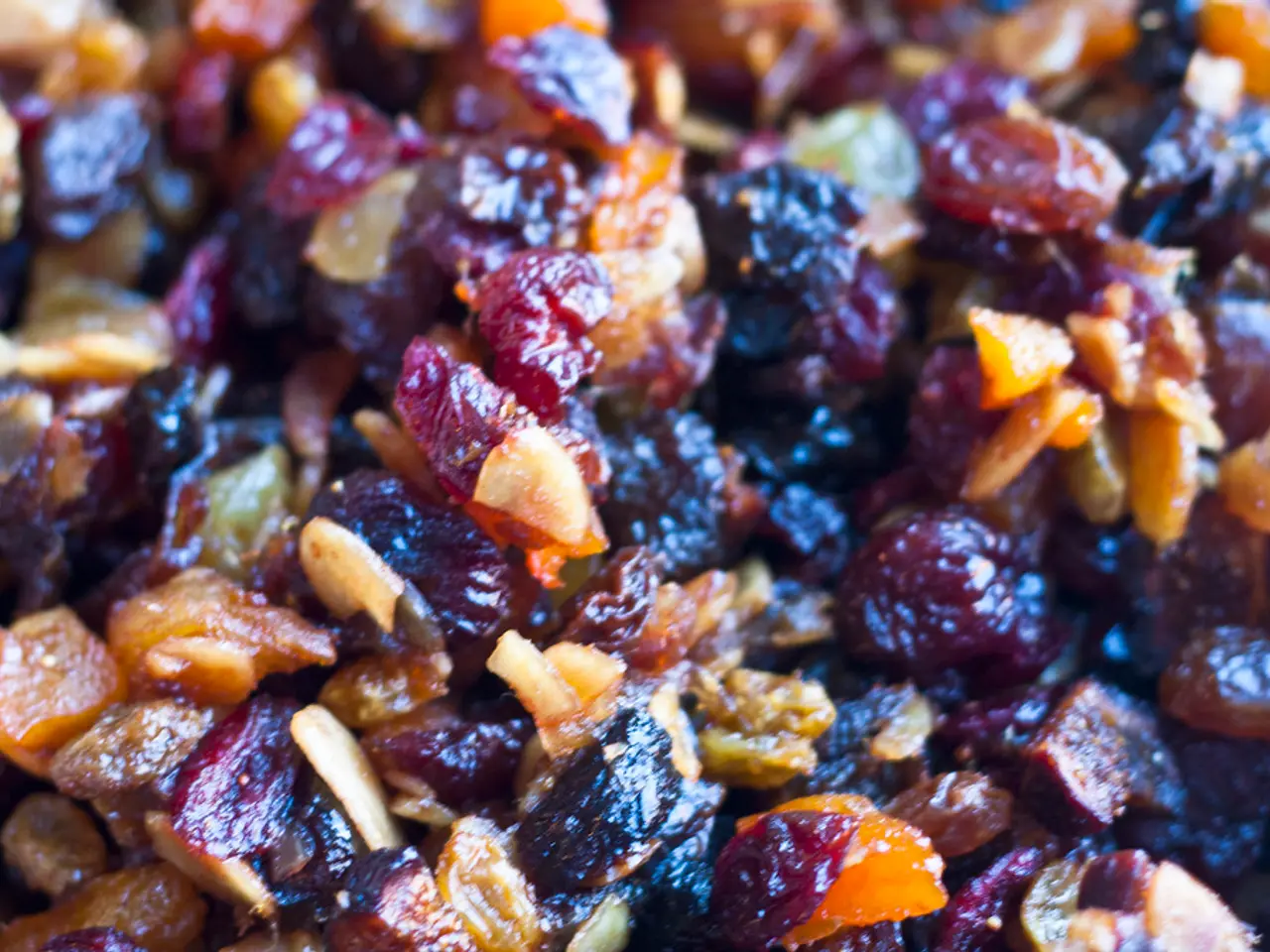Enhancing Performance: Top 6 Vitamins and Supplements for Athletes
In the world of sports, every second counts. Athletes are constantly seeking ways to optimize their performance, reduce fatigue, and recover more quickly. Supplements can play a crucial role in this quest, but it's essential to understand their benefits and potential risks.
A range of supplements, including B vitamins, iron, calcium with vitamin D, coenzyme Q10, creatine, and ashwagandha, can offer various benefits for athletes aiming to combat fatigue and enhance performance.
B Vitamins support improved cellular energy production, immune function, and cognitive performance, potentially reducing fatigue and enhancing overall training capacity. Iron, essential for oxygen transport via hemoglobin, can alleviate fatigue and improve endurance, especially in athletes with iron deficiency. Calcium and vitamin D are crucial for bone health, muscle function, and recovery, while CoQ10 acts as an antioxidant and supports mitochondrial energy production. Creatine is well-documented to improve short-term high-intensity exercise performance and support muscle recovery, and emerging evidence suggests neuroprotective benefits in athletes at risk for concussion. Ashwagandha, an adaptogen, may reduce stress and fatigue while improving recovery and muscle strength, supporting endurance and performance gains.
However, these supplements also carry potential risks if misused or taken without proper guidance. Overuse and imbalanced intake can cause adverse effects, especially in the case of iron. Most research is based on adults, and young athletes have unique nutritional needs, and inappropriate supplement use can impair growth, bone development, and reproductive function. Poor regulation, contamination, or mixing multiple supplements without professional guidance can lead to negative side effects or inadvertent doping violations. Long-term effects, particularly for adaptogens like ashwagandha and bioactive compounds such as CoQ10, are not fully established, necessitating caution.
The International Olympic Committee highlights the value of supplementation in managing energy supply and enhancing performance but stresses prudence and personalized strategies. Athletes considering these supplements should approach them as part of a comprehensive nutrition plan, tailored to their specific health status, training demands, and potential deficiencies to maximize benefits and minimize risks.
For athletes following vegetarian and vegan diets, taking particular care to ensure they are obtaining enough nutrients through their diet is crucial. Speaking to a doctor is crucial before starting any new vitamins or supplements, as they can interact with other medications. Creatine supplementation can increase muscle mass and improve strength when combined with strength training, and in some cases, when combined with substances like caffeine, taurine, and amino acids, may help athletes feel focused and increase the time they feel before exhaustion. Some vitamins may be ineffective unless a person has an existing deficiency.
In conclusion, while targeted use of these supplements can help optimize energy metabolism, reduce fatigue, accelerate recovery, and improve performance in athletes, their effectiveness varies and depends on individual needs and context. Professional guidance and appropriate dosing are critical to avoid risks associated with misuse, especially in populations like adolescents where safety data are limited. Eating a balanced, nutritious diet and getting enough sleep may also boost athletic performance.
- B vitamins, an integral part of workout supplements, support cellular energy production, immune function, and cognitive performance, potentially reducing fatigue and enhancing overall training capacity.
- Iron, a micronutrient, is essential for oxygen transport via hemoglobin, alleviating fatigue and improving endurance, especially in athletes with deficiencies.
- Calcium with vitamin D, crucial for bone health, muscle function, and recovery, works synergistically to support athletes' performance and recovery.
- Coenzyme Q10, a vital antioxidant, supports mitochondrial energy production and acts as a protective shield for athletes, particularly during high-intensity workouts.
- Creatine, a popular supplement, is well-documented to improve short-term high-intensity exercise performance, supporting muscle recovery, and potentially offering neuroprotective benefits.
- Ashwagandha, an adaptogen found in some supplements, may reduce stress, fatigue, and improve recovery while increasing muscle strength in athletes, contributing to better performance.
- However, these supplements need to be used carefully to avoid potential risks like overuse and imbalanced intake, especially in young athletes and those on specific medications, like those with MS or asthma.
- Science plays a crucial role in the development and understanding of these supplements, and athletes seeking their benefits should consult health-and-wellness professionals for advice on their specific needs and potential interactions with other substances.
- A balanced diet, rich in nutrients, alongside regular exercise, sleep, and appropriate supplementation, forms the cornerstone of athlete's performance optimization in the realm of fitness-and-exercise and anti-aging.




